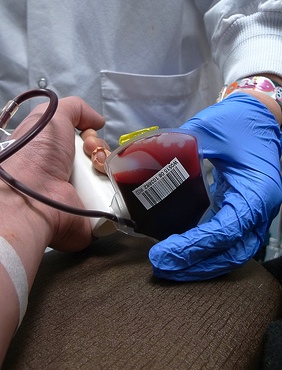
Depression has always been a difficult disease to diagnose, since psychiatrists have to rely on patients’ own reports of symptoms and their own observations. Now, groundbreaking research out of Northwestern University suggests that a routine blood test may be able to provide an objective diagnosis in teenagers.
“This is the first significant step for us to understand which treatment will be most effective for an individual patient,” lead researcher Eva Redei said in a statement.
For the study, researchers interviewed a total of 28 teenagers ages 15 to 19 years old. Fourteen of the teenagers had early-onset major depression and had not yet been treated, while the other 14 were non-depressed.
Both parents and adolescents were interviewed separately about the participant’s lifetime psychiatric symptoms and medical history. Then each youth filled out a questionnaire about exposure to maltreatment.
Afterward, blood samples were taken from each participant. Redei looked for 26 genetic blood markers she had identified in a previous study using rats, which exhibited similar behavioral and physiological abnormalities as patients suffering from depression and anxiety.
In the samples, Redei identified 11 genetic blood markers that differentiated between depressed and non-depressed teens. Furthermore, 18 biomarkers distinguished between patients who had major depression and patients who were depressed and suffered from an anxiety disorder.
“These 11 genes are probably the tip of the iceberg, because depression is a complex illness,” Redei said. “But [. . .] it clearly indicates we can diagnose from blood and create a blood diagnosis test for depression.”
The results, though preliminary, are quite promising when it comes to treating teens who suffer from early-onset depression. Researchers noted that rates increase to 17 to 25 percent from 1 percent by late adolescence and young adulthood, and early-onset depression carries a poorer prognosis than adult depression. Even more disconcerting is that depressed teenagers are more likely to turn to drug abuse, illness, and suicide.
“Right now, depression is treated with a blunt instrument,” said Redei. “We need to do better for these kids.”
To read the full study, click here.


















